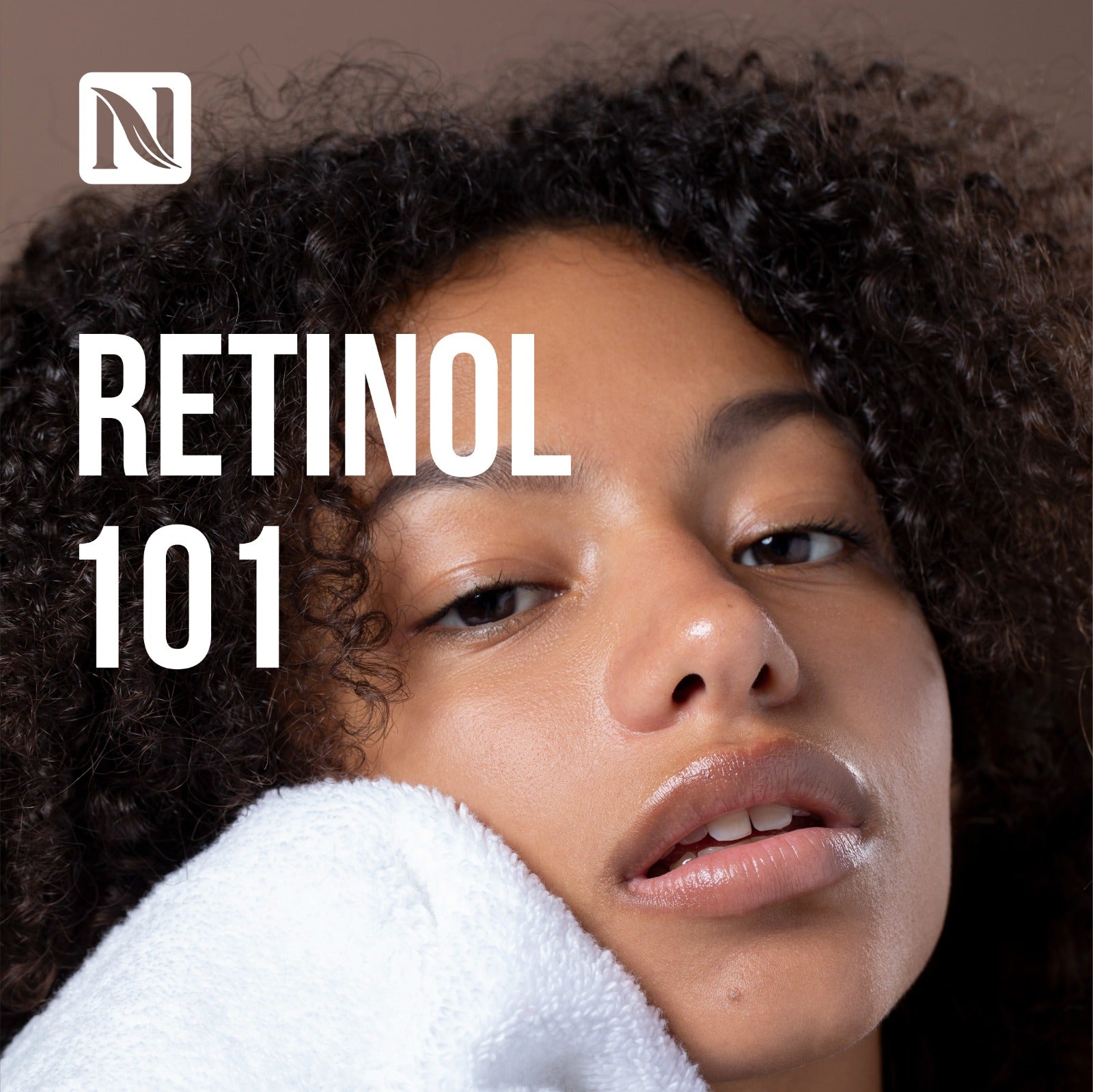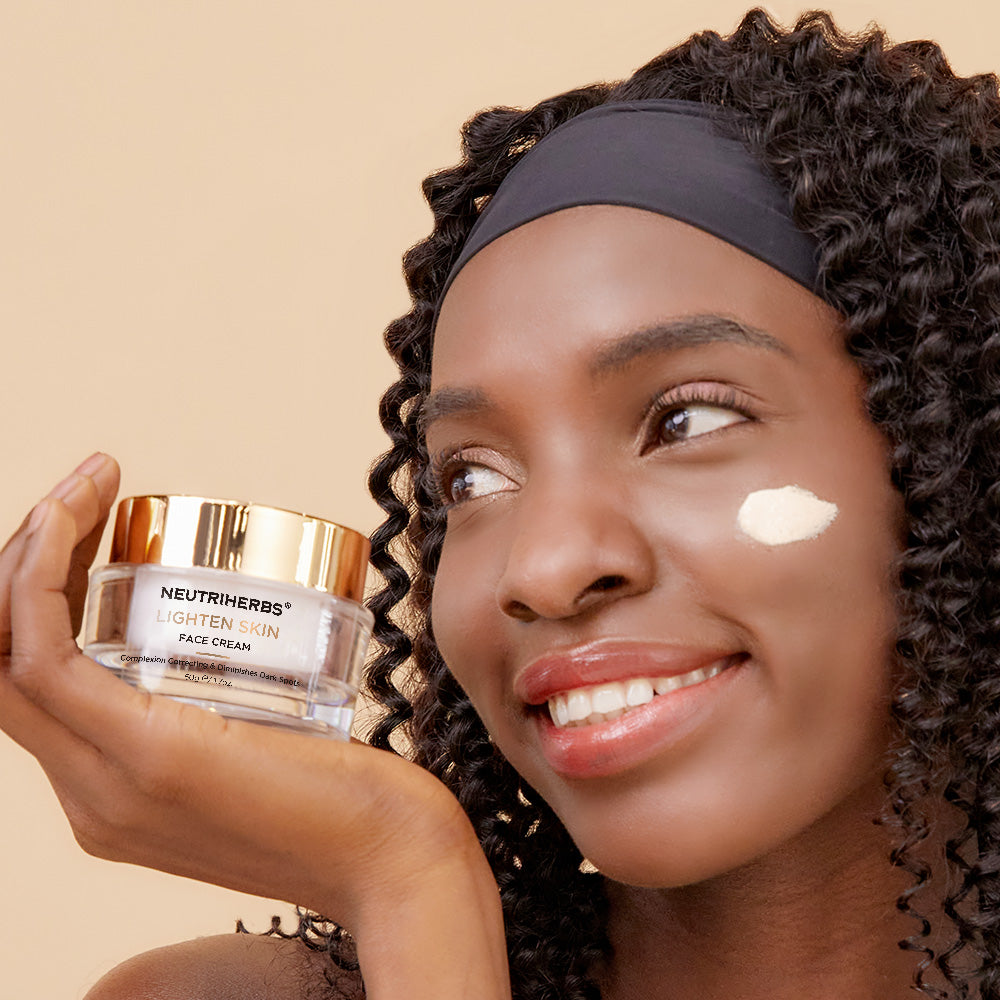
Who doesn’t want a brighter even toned complexion? We do and we’re willing to bet you want a flawless skin too and that’s just why everyone raves about Vitamin C.
It’s a powerful antioxidant with so much benefits: It brightens up your complexion, prevents free radical damage, evens out hyperpigmentation, protects the skin from environmental aggressors, keeps skin bouncy and healthy-looking plus it plays well with all skin types and tones.
But if you’re yet to incorporate vitamin C products into your skin routine, allow us to convince you of the many reasons why you should. In this article, we’d share all the need-to-know details about vitamin C, including it's benefits and the most effective ways to use it for a healthier, brighter complexion.
What is Vitamin C?

Vitamin C is the most abundant skin antioxidant and an essential nutrient required for skin, but our body cannot produce it on it’s own. The powerful antioxidant is found naturally in fruits and vegetables and commonly produced synthetically in skincare products, such as moisturizers, toners, and, most popularly serums.
It’s important to note that All Vitamin C are not created equal. Vitamin C has active and inactive forms which means Depending on the skincare formulation, applying vitamin C can do absolutely nothing or can work really well.
The first form of vitamin C worth mentioning is the pure form, L-ascorbic acid. It is the most biologically active and well-studied form of vitamin C, but there are also several vitamin C derivatives, such as sodium ascorbyl phosphate, ascorbyl palmitate, retinyl ascorbate, tetrahexyldecyl ascorbate, and magnesium ascorbyl phosphate. These derivatives are not pure vitamin C, rather they are combined with other ingredients which might help to keep the vitamin C stable with less irritations but undeniably less potent than the Original Ascorbic acid form which many would call the King of Vitamin C.
How Does Vitamin C Work?
To understand how vitamin C works, we first need to know how free radicals damage the skin. We are exposed to free radicals everywhere from the air we breathe, cigarette smoke, UV sunlight, stress, and smog and the effects are no joke: They damage the skin, alter DNA, skin barrier and cell functioning.
Free radicals are that bad.
To demonstrate how dangerous free radicals are to the naked eye—and to prove how vitamin C works as an antioxidant to combat them—Neutriherbs devised a simple experiment involving an apple. We coated one end of a slice with a thin layer of vitamin C serum and left the other side completely untouched. Then, we waited for 8 hours. Here's what happened:
As you can see, the side of the apple that was coated with the vitamin C serum didn't oxidize at all. This shows how topical vitamin C can prevent oxidation, and therefore, slow down the visible appearance of aging.
This was just an 8-hour experiment. Imagine what the side without vitamin c would look like 8 days later or even 8 years later. Now imagine what your skin could look like on your 80th Birthday after a lifetime of not applying vitamin c. You wouldn’t want that.
So If you’re using Vitamin C to fade dark spots on your skin (whether they’re there as post acne-marks or from the sun), Vitamin C can definitely help. How? One of Vitamin C’s most well-recorded abilities is its power as a depigmenting agent. I know what you’re thinking - wait, is it going to bleach my skin? Rest assured, Vitamin C isn’t going to do that.
‘Depigmenting’ is just a big grammar which means ‘fading dark spots’ for an even, glowing skin tone. Vitamin C is able to do this by specifically targeting tyrosinase, the enzyme responsible for melanocyte production. By interrupting this process, Vitamin C stops overzealous melanocytes from creating too much melanin as a response to trauma - like the kind that happens to skin after a breakout or sun damage.
What Does Vitamin C Do For Your Skin?
- As an antioxidant, Vitamin C protects skin from damaging free radicals caused by UV exposure. keeping it healthy and improving visible signs of premature aging.
- Fights wrinkles and fine lines by Boosting collagen production to improve skin’s elasticity for youthful look.
- Lightens appearance of dark spots and post-inflammatory hyperpigmentation by inhibiting production of tyrosinase, an enzyme that contributes to melanin production.
- Revitalizes sun damaged skin and helps treat sunburn
- Evens out skin tone for a uniform look
- Could help minimize redness and reduce inflammation
- Hydrates dehydrated skin
What To Look For In a Vitamin C Product
Once you start hunting you’ll discover a lot of vitamin C products are out there. Keep these tips in mind to help narrow your search:
1. Look for L-ascorbic acid
Lots of products claim to contain vitamin C, but for this antioxidant to be truly effective, you need to look for L-ascorbic acid (or just ascorbic acid) in the ingredient list — as this is its most active form.
2. Concentration Matters
Start out with a 10 percent concentration to see how it suits your skin. You can then move to a product containing a higher concentration of 15 to 20 percent if you feel this is required and your skin can tolerate it.
But Make sure the product has at least 10 percent as any less than this won’t be effective.
Lower vitamin C concentrations around 10 percent are gentler on sensitive skin, whereas normal skin may tolerate 15-20 percent concentrations
3. The container shouldn’t let air or light in
Vitamin C is super-sensitive to light, so the sun’s rays will break it down faster if it’s in clear packaging. As such, you also want to keep it stashed away in a cool, dark space — such as the fridge — as heat exposure reduces its potency too.
Although vitamin C serums are often a yellowish color, if the tint turns darker or brownish, that’s a sign air might have gotten to it and made it ineffective.
That’s why it’s important you try to always close your vitamin c products very well and airtight after every usage and don’t leave it open for long during usage.
4. Contains Other Star ingredients
Your vitamin C product will be the most powerful if it contains the following complementary ingredients:
- Ferulic acid - It’s been proven to increase vitamin C’s stability by 90 percent.
- Vitamin E - This antioxidant boosts UV protection.
- Glutathione - This also has antioxidant properties.
5. Stick to professional products from brands you trust.
Formulating vitamin c products requires a great deal of skill and experience. We’d suggest you stay clear of DIY (Do-it-yourself) and homemade vitamin c mixtures from orange/lemon etc. It’s not only ineffective but could cause damage. Similarly, it’s not enough to get a vitamin c product from just any brand because the label says it’s vitamin c – ask questions and verify the active ingredient claims.
How to Incorporate Vitamin C Into Your Routine

In terms of when to use it, vitamin C should become a staple in your morning routine, as this allows it to do its work in protecting skin from free radicals during the day.
You should cleanse and tone, then apply your vitamin C serum and follow with a moisturizer.
Don’t forget to apply sunscreen after moisturizing, in order for the two products to work well together to combat UV exposure.
Best Practices for Using Vitamin C
Store It Properly
No matter what type of vitamin C you use, you want to make sure you keep your product in a dark area where the humidity and temperature won’t affect it’s effectiveness. While it feels practical to keep your skincare products in your bathroom, so you have easy access to them after cleansing, consider stashing them on your bedroom vanity or wardrobe where there is less light and less risk of destabilizing.
You will know if your product has oxidized if it changes color. Usually, vitamin C products are yellow-ish in color, but may turn brown after oxidation. Additionally, if you notice your product has a different smell than usual, that could also indicate it has oxidized. It doesn’t necessarily mean it’s unsafe to use, but it doesn’t hold the same antioxidant capabilities.
Incorporate It Into Your Routine Slowly
As with most new active ingredients that you’re introducing to your routine, it’s best to take a slow and steady approach to make sure your skin’s not negatively reacting to it. Ethyl Ascorbic Acid found in Vitamin C Serum is gentle enough for daily use (it can be applied both morning and night to clean skin), but if you’re using other forms of vitamin C like Neutriherbs Vitamin C Super Booster made with 20% Pure Ascorbic acid, you may want to work your way up to regular use.
Be smart about how you layer and combine products.
Though vitamin C pairs well with many other ingredients, you should take the necessary precautions (patch testing, slow introduction) when combining actives.
Also, sometimes it’s not the vitamin C itself in a formula that can irritate, but the other ingredients in your products that make skin uncomfortable. Vitamin C can be used same time as Hyaluronic acid, Vitamin E but may not be used same time as AHAs, Salicylic Acid, niacinamide, and even retinol.
If you’re concerned about how your skin will react with other actives in your routine, try alternating the days you use your products.
Don’t Forget the SPF
Think of vitamin C as a partner to your sunscreen: We always suggest applying vitamin C particularly in the morning, because it’s such a great antioxidant that pairs well with the protective benefits of your sunscreen. The duo help fight off free radicals and environmental pollution that damages skin.
Use It Consistently (and Know When to Stop)
As with any of your skincare products, it’s best to use it consistently to get the most of its benefits — and see results quicker. It depends on the concentration of your vitamin C, but generally speaking, you can expect to see the biggest impact after continued use for three to six weeks.
So, now that we know exactly what Vitamin C does for skin and how to use it - how long does it take for the magic to happen?
How long does Vitamin C Take To Work
A little bit of consistency and a whole lot of patience goes a long way when it comes to seeing results for most beauty ingredients - and Vitamin C is no exception.
While every one’s skin and individual experience might differ. In most cases, you will begin to see the long term effects of regular Vitamin C use in about six to 12 weeks. Though, you may notice that your skin looks and feels softer, brighter, and more supple within the first few weeks. This largely depends on the type of vitamin c, it’s potency as well as your overall skin quality and type.
But here’s an approximate timeline of how long it takes to see results (and which ones you’ll see)!
4 WEEKS
4 weeks is usually the golden rule for beginning to see changes - it’s allowed your skin to go through at least one renewal cycle with this skin-changing ingredient. At this point, your skin should have a subtle change in radiance, which is something you’ll notice will stick around as long as you keep using Vitamin C.
It’s also around this time that you’ll probably notice any pigmentation start to fade. Here’s a pro tip - you can give Vitamin C a helping hand by using sunscreen daily. This helps to speed up the fading process and prevents the sun from darkening these spots further.
8 WEEKS
8 weeks later - so around two renewal cycles, give or take - you might see changes in firmness and elasticity. Your skin has had plenty of time to take advantage of the collagen-creating benefits of Vitamin C, and it’s only up from here!
16 WEEKS
Studies on Vitamin C’s long term effect on skin have found that it’s around this point where a significant difference can be seen in hyperpigmentation and sunburn. At this point, that means you should see a major difference in skin radiance, luminosity, and reduction in the look of any hyperpigmentation - they might even be completely gone.
6 MONTHS+
So at this point, you’ve committed to Vitamin C for the long haul, and this is the point in time where every single benefit should be showing in full swing; I’m talking about luminous skin, even skin tone, firmer skin, and a drop in the intensity of wrinkles.
Your skin has had so much time to boost collagen production and brighten dark spots that it should look amazing! And here’s the best part - this is only what Vitamin C can do. If you used this alongside peptides, retinol, or even an AHA, imagine how amazing your skin could look.
The right products + Patience + Consistency + Right Usage = Beautiful & Happy Skin.
The Perfect Vitamin C Skincare Routine

While using just a vitamin c serum or cream or both is okay and it’s a popular routine we see around, Richer results from Vitamin c might be achieved when Vitamin C is used every step of the way from the cleanser down to the moisturizer even the SPF. There is nothing like too much of vitamin c.
Our Recommended Vitamin C Day Time Layering Guide For Maximizing Result:
Step One:
In the Morning, cleanse with our Vitamin c Daily Glow Facial Cleanser. Pat Dry.

Step Two:
Pour 2/3 drops of Vitamin C Brighten & Glow toner into cotton pad or cotton wool and extra clean face with it. Don’t wash off. Allow to absorb in.

Step Three:
Apply 2/3 drops of Vitamin C Serum and massage all over face and neck. Give it a minute to absorb all in.

Step Four:
Follow through with Vitamin c Brightening & Glow Face Cream. Apply just a pea sixed and massage over face and neck.

Step Five:
Next Apply 2/3 drops of vitamin c face oil and massage all over face and neck for that extra hydrated glow

Step Six:
Finally, Finish it all off with your sunscreen and go have a beautiful day.

FAQS
Are All vitamin C Serums the same?
Not at all. Vitamin c comes in different forms with varying abilities. Be sure to learn about the exact vitamin c type used in the formulation alongside it’s pros and cons and more importantly trust the brand.
Can Vitamin C act as a sunscreen?
While it’s true that vitamin C can help protect against the sun’s UV rays, it is not — and should not be used as —sunscreen. Sunscreen acts more like a Filter and Vitamin C could help deal with some of those free radicals that slip through the sunscreen. Think about vitamin C and sunscreen as best friends who back each other up but should be used together.
What’s The Best Time to use Vitamin C?
While Vitamin c can be used either morning or night. We encourage our customers to use vitamin C in the morning to let it’s super antioxidant qualities shine out because it can work together with sunscreen to help protect against UV damage and skin pigmentation. However, using it at night has its anti-aging benefits too, including promoting collagen production to improve skin tone and texture and helping fade dark spots. Use it whenever you want, just be consistent and do not let your product sit on the shelf and break down.
Is higher percentage of vitamin C better?
Just as with retinol, the more potent a skincare ingredient is, does not always mean it’s going to yield the kind of results you’re looking for. Skincare works differently for different people. Some can be sensitive to higher percentages of vitamin C. We recommend always starting low if you have sensitive skin or trying a gentler formulation.
What’s The Best Type of Vitamin C For Sensitive Skin?
Ethyl Ascorbic Acid (EAA), Magnesium ascorbyl phosphate (MAP), tetrahexyldecyl ascorbate (THD ascorbate), and sodium ascorbyl phosphate (SAP) are all gentle yet still highly effective and stable forms of vitamin C for sensitive skin types.
Can Vitamin C Cause Acne?
It’s not that the vitamin C itself causes or worsens acne — it’s the potential irritation that can result from vitamin C if you’re not smart about its application. Vitamin C can be irritating at higher concentrations Plus, certain types of vitamin C can be more irritating than others. In some cases, vitamin C can lead to improvements in acne because of its anti-inflammatory properties.
It is still important to read the rest of the ingredients in your products. If vitamin C is found in an oil-based vehicle instead of a water-based vehicle, it may be the oil clogging your pores and contributing to breakouts.
Why do I get pimples after using vitamin C serum/Moisturizer?
Acids, vitamin C and retinoids can all cause purging. Purging is an initial acne breakout that can occur when you're starting a new active skincare product—one that causes your skin cells to turn over more quickly. Products that can trigger purging include: Hydroxy acids (AHAs, BHAs and PHAs) and fruit acids


